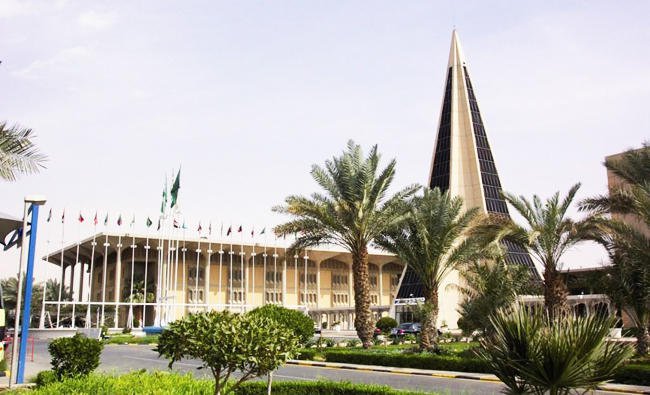
Naif Arab University concludes seminar on combating money laundering, financing terrorism
The Training College at Naif Arab University for Security Sciences (NAUSS) recently concluded a seminar on combating money laundering and financing terrorism, at the university’s headquarters in Riyadh.
Jamaan Rashid ben Ragosh, president of the NAUSS, and the director of the General Department of Financial Investigation at the Ministry of Interior, Maj. Fahd bin Abdulaziz Al-Maghlouth, attended the event organized to the benefit of judges and notaries from Saudi Arabia.
Ben Ragosh briefed the participants on the latest developments in the field of combating money laundering and financing terrorism, to raise their awareness about the developments in the security and justice arena.
He said: “The issue of fighting money laundering and combating terrorism is of utmost significance of the university, which has conducted a considerable number of activities concerning these crimes in cooperation with the relevant international institutions, including holding a number of seminars and conferences.”
Ben Ragosh said the program has been successful and attracted a group of Arab and international experts who helped reach the desired goals.
He expressed hope that the recommendations, discussions and exchange of experience in combating the above-mentioned crimes will contribute to combating them.
The seminar explained the concept of money laundering and financing terrorism, as well as their effect on the society, and introduced provisions and procedural aspects used to combat money laundering, clarifying the role of the Saudi Arabia Financial Investigation Unit (SAFIU) in the fight against these two crimes.
It also clarified the role of financial institutions in combating these crimes, and the various traditional and technical methods used in this fight, and identified the international rules governing Anti-Money Laundering/Combating Financing of Terrorism (AML/CFT) activities.
Money laundering and financing terrorism continue to be a source of global concern despite international, regional and national instruments, which include many conventions and laws that have established the framework within which the efforts of states and organizations in this direction are coordinated.
Money laundering operations have been conducted through the banking system, which makes the operation quite easy; hence the need for awareness and for respect for national and international instruments controlling such operations.



























